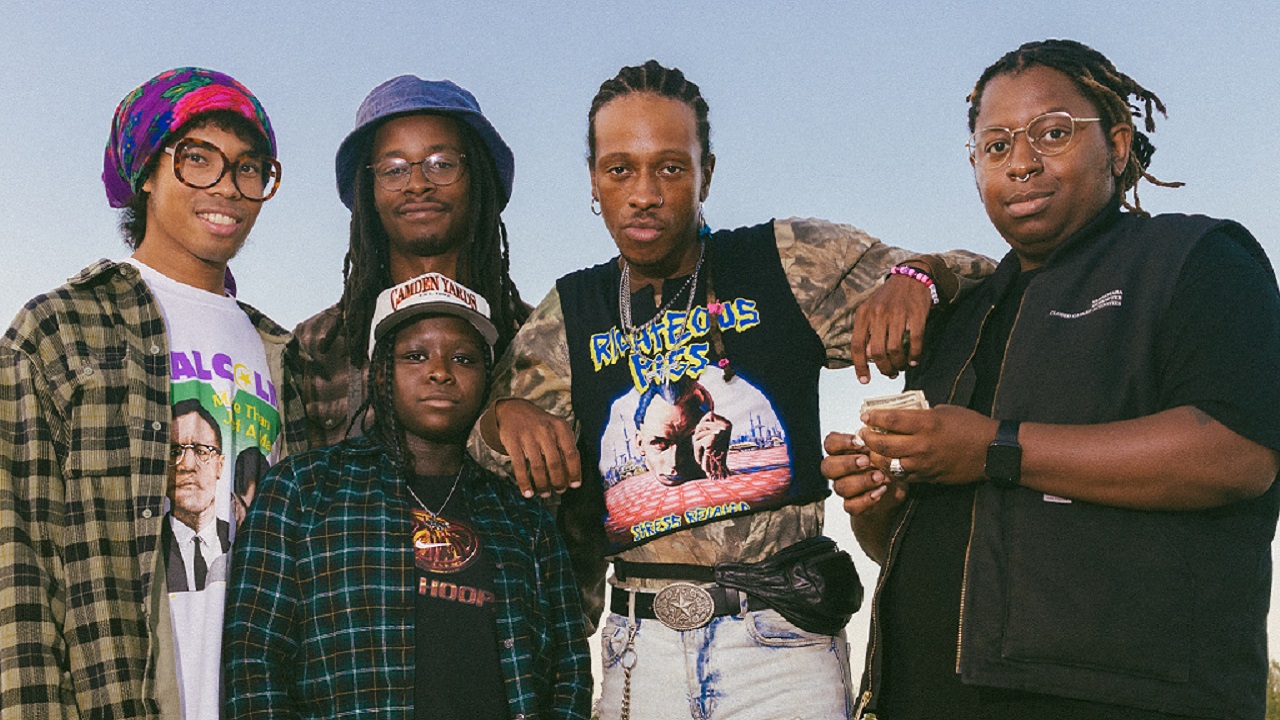
For decades now, hardcore’s more progressive elements have talked a good game about inclusivity, equality and diversity. But despite the fundamental impact Black musicians have had on the genre (Bad Brains, Void, Swiz and Beefeater…) they remain sorely underrepresented – even as the genre has done better to embrace other underserved communities.
Thankfully, a new generation is putting the scene’s money where its mouth is, from re-energising familiar sounds to rewiring genre tropes altogether. Rising fast among them are LA’s Zulu, the brainchild of multi-talented frontman Anaiah Lei.
Taking influence from powerviolence (a virulent form of hardcore that emerged in the late 80s/early 90s and distilled the genre down to its rawest, barest elements) while weaving in samples, spoken-word pieces and nods to the likes of Nina Simone, Bob Marley and Eddie Kendricks, Zulu offer both furious, skull-fracturing heaviness and an electric celebration of Black culture.
After two well-received EPs (both released by the UK’s Quality Control HQ) the band have dropped their blazing debut album, A New Tomorrow, and it represents their boldest work yet.
“It took a lot of time just going crazy in my house trying to figure out how to put everything together,” says Anaiah of the meticulous care with which the gut-churning riffs were spliced with soul, funk and reggae influences. “I need the sound to be an exact way, and I’ll do whatever it takes to get to that point. Trial and error is a big part of Zulu, and it comes down to trying to make it cohesive and getting my point across. It takes a lot of time but it’s fine because I love doing it – it’s my favourite part about making music because it’s so limitless.”
‘Limitless’ is the best way to sum up Zulu’s sound: a melting pot of influences and styles that’s infinitely refreshing given how happy to rest on its laurels hardcore can often be.
“It wasn’t until we came to the LP and started diving into different genres that I saw this could go in any direction,” says Anaiah. “I remember thinking, ‘Are we really limited to genre?’ All of us are excellent musicians, so why would we be?”
Despite this feeling that the band could go anywhere and do anything, Anaiah has no grand endgame planned. “I never had a beginning game,” he laughs. “It’d suck if I did, because you don’t stay the same person. From when I started writing A New Tomorrow to the end, I was two completely different people. I scrapped most of the lyrics because I wasn’t in that place. I rewrote them to reflect my new headspace, and that just means anything’s possible in terms of what the future looks like.”
For all its stylistic pivots, A New Tomorrow is an undeniably brutal record when it needs to be. But while powerviolence bands of yore would typically steep themselves in the stink and misery of negative human experience, Zulu leaven their righteous fury at the systemic challenges faced by the Black community with glimpses of hope.
“I never wanted to be one of those bands with the scary image,” says Anaiah. “If you want to be all skulls and daggers that’s cool, but that’s never been me. I wanted this band to be authentic to who I am. What does that look like? The artwork being colourful, the merch looking a certain way – everyone knows we make really cute, fun merch. And a big part of this record is very hopeful. It celebrates love and unity and peace and happiness. There’s parts where it’s on the other spectrum, but as a whole, that’s the underlying thing. A lot of people come to this genre to express all the anger they have inside, and I’ve done that too. But I don’t want to consistently do that. There’s a whole other side to us as a band.”
A sense of unity and cohesion is reflected across A New Tomorrow, both in terms of its intrinsic spirit and its uniting talented musicians beyond the core group. Members of Soul Glo, Truth Cult and Playytime guest alongside Aisha Burns and Precious Tucker, who contribute violin and piano respectively.
“I always want to support, lift up and involve other Black musicians when it comes to the art that we make,” says Anaiah. “That’s something I try to do as much as I can, because that’s what the band is about.”
As for the wider scene, does Anaiah see any improvement thanks to Zulu’s growing prominence and that of other gatekeeper-unfriendly hardcore acts?
“It still has… I don’t even want to say remnants, because that old mentality is a very prominent part of what’s going on. It is changing, though. A whole new generation of kids are stepping into it. They’re coming as they are, and being able to identify as who you are is definitely more accepted than it’s ever been. So we do see that at our shows, and I think as a whole we see the scene getting better and better. There’s still that ignorance, and it’s still a problem. But it’s getting dulled, which is good – it needed to go a long time ago.”
A New Tomorrow is out now via Flatspot








